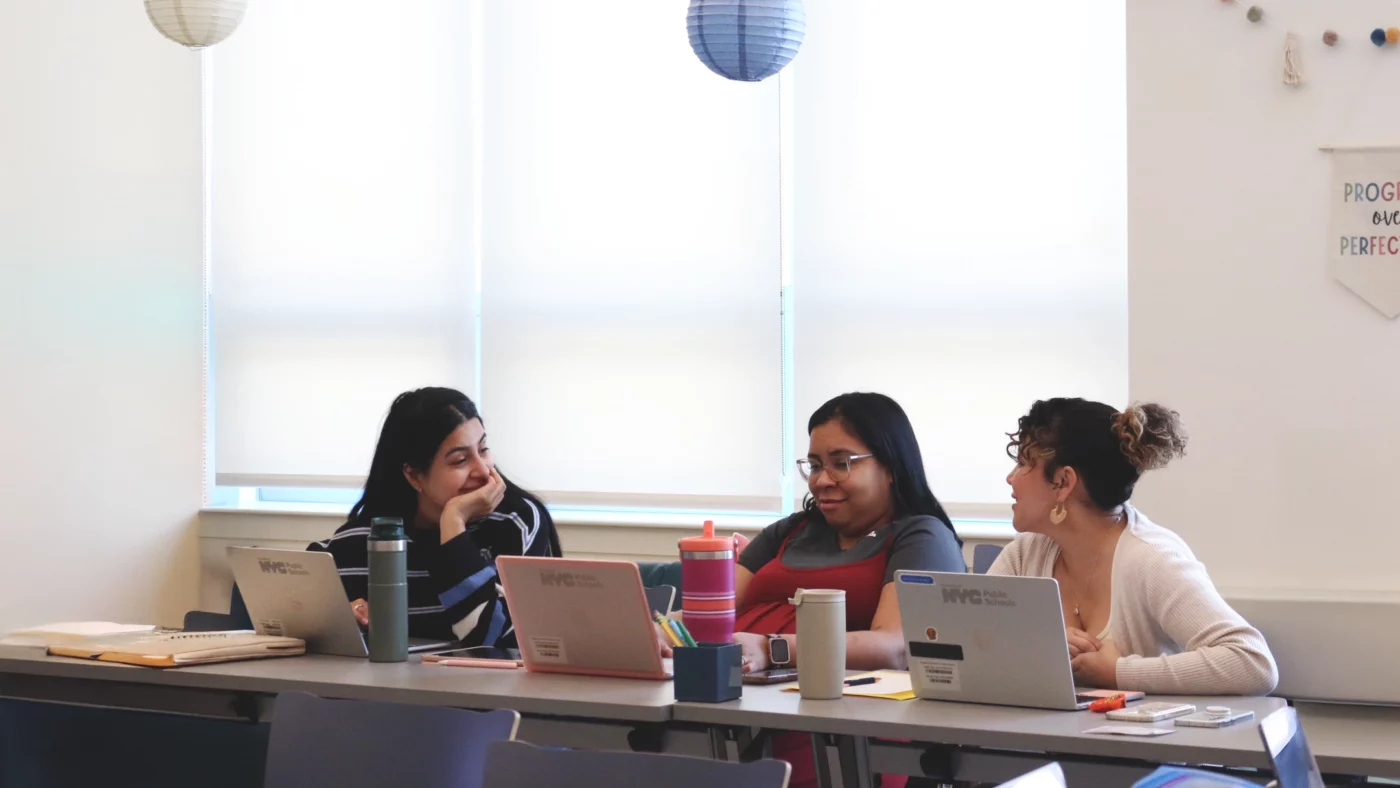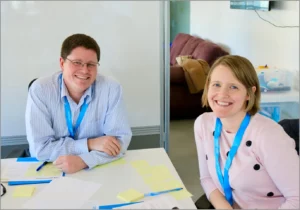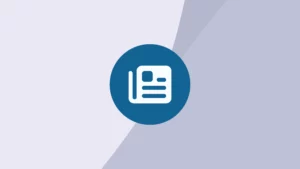“The job of teaching special education, as currently designed, is just too hard. If we don’t change how we support special educators, we’ll keep losing them.”
These words spoken by Nathan Levenson in a Goalbook-sponsored Spotlight Series webinar called “Three Effective Strategies to Address the Special Educator Shortage and Staff Burnout,” underscore the urgency of the special educator staffing crisis and the need for systemic change, which is within reach.
Goalbook offers free Spotlight Series webinars exclusively for special education administrators as part of our holistic approach and commitment to supporting school districts and the special education community. The webinars feature expert presenters across multiple areas of practice in the special education field.
Drawing from his extensive experience as a former superintendent and now as a nationally recognized special education consultant, Levenson provided actionable insights to create a more sustainable and rewarding work environment for special educators. Below are three practical strategies Levenson presented to help special education administrators tackle the ongoing challenges of staff shortages and special educator burnout.
Strategy 1: Allow Special Educators to Play to Their Strengths
One of the most impactful strategies Levenson discussed is enabling special educators to focus on their areas of expertise. “We have to stop pretending everybody is good at everything,” Nathan said. “Ask them where they are strong, and then allow them to play to their strengths.”
By identifying and aligning educators’ strengths with their roles — whether it’s in behavior management, case management, or academic intervention — schools can enhance job satisfaction and effectiveness. Levenson stated, “Not only will special educators be much happier, but they’ll probably be more effective and efficient because they’re doing what they’re good at.”
Practical Takeaway: Ask special educators directly what they feel most confident in, and adjust assignments accordingly. In this way, the collective workload can be balanced out based on people’s strengths instead of there being a mismatch of people’s skills and interests with their workload. For example, if an educator thrives in teaching reading and writing, let them do more of that and less teaching of math. “If a person spends 75–80% of their day doing the part that they’re really good at, enjoy, and feel comfortable with, they’ll happily put up with the other 20–30%,” said Levenson.
Strategy 2: Streamline Meetings and Paperwork
Excessive administrative tasks are a significant contributor to burnout among special educators. Levenson emphasized the importance of cutting back on unnecessary meetings and simplifying paperwork processes, stating, “Special educators already do the most. Cutting down unnecessary meetings and redundant paperwork is a game changer.”
Levenson provided three best practices for streamlining meetings and paperwork:
- Believe it’s possible. School leaders must commit to reducing paperwork and meetings and recognize that streamlining is both necessary and feasible.
- Review the invite list for every meeting. Ask: Is every person in the meeting necessary for the full duration? If not, allow them to leave early or skip it altogether.
- Dispel myths. Many special educators complete tasks because they assume leadership expects them to, when in reality, no directive has been given.
Practical Takeaway: Challenge existing assumptions about required paperwork and meetings. Ask educators what processes feel unnecessary and be willing to eliminate redundancies. One district Levenson worked with implemented a policy allowing educators to leave meetings early if their presence was no longer required. This simple change freed up hours of instructional time per week, reducing stress for special educators.
Strategy 3: Let General Education Play a Bigger Role
Levenson highlighted the importance of fostering stronger collaboration between general and special education teams. “We’ve got to help general education teachers get better and more comfortable serving students with special needs, particularly mild to moderate special needs,” said Levenson.
General education teachers want to be helpful, but they don’t always know how to be helpful. Levenson stated: “If general education teachers received the right support, they’d step up and be partners in this effort.”
Practical Takeaway: Provide simple, actionable strategies to general educators. Instead of overwhelming them with theoretical training, offer practical tools like checklists, quick-reference guides, and real-time coaching from special education staff. Implement peer coaching or mentorship models where special educators share best practices for supporting students with disabilities with general education staff.
See These Strategies in Action
Mooresville Graded School District in North Carolina has been a partner of Goalbook for over three years. The district’s special education leaders attend nearly all of the Spotlight Series sessions as the webinars have proven to be valuable and transformative for them.
After attending Levenson’s webinar, they were inspired to approach change management to their special education program in a new way by implementing some of the strategies Levenson presented.
One strategy the district leadership team implemented was allowing teachers to play into their strengths. What this looks like in practice is the lead teachers in a building being more responsible for the paperwork while other teachers are doing more direct instruction. This means that some educators have a higher caseload, but it’s manageable since they’re completing annual reviews and progress monitoring, while others are completing most of the other paperwork (referrals, transfers, etc.).
In addition, communication and transition from one teacher to the next is now more efficient because Mooresville special educators district-wide are using Goalbook Toolkit.
Read the full story about how the Goalbook Spotlight Series webinar sparked outside-the-box thinking for the Mooresville Graded School District special education team here.
Conclusion
Goalbook’s Spotlight Series webinar presented by Nate Levenson offers a roadmap for addressing the challenges of special educator shortages and burnout. By allowing educators to focus on their strengths, streamlining administrative tasks, and encouraging collaboration with general education staff, schools can create a more supportive and effective environment.
If you missed the session, the recording and additional resources are available through Goalbook by clicking here.






